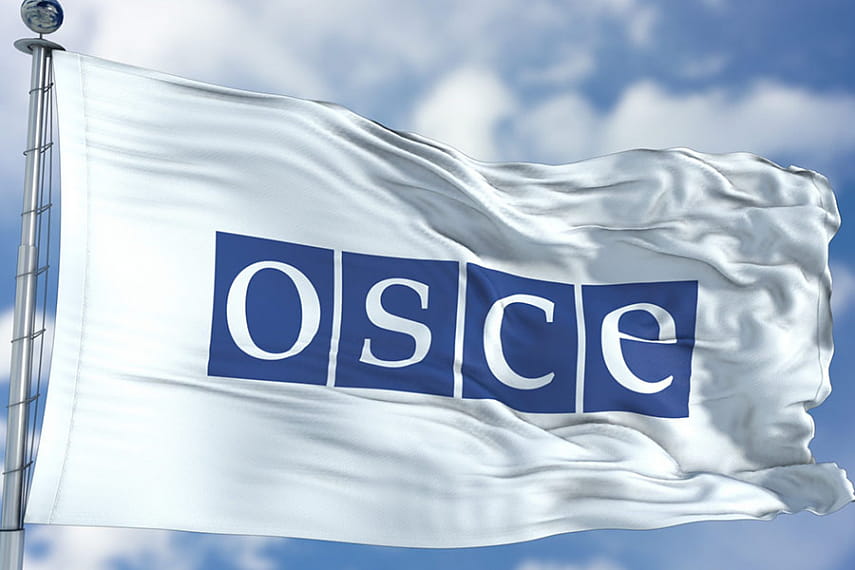Curbs on constitutionally guaranteed freedoms and concerns over procedural integrity tarnish early parliamentary elections in Belarus even as candidate numbers rise, international observers say
Fundamental freedoms were disregarded and the integrity of the election process was not adequately safeguarded in the early parliamentary elections in Belarus even as the number of registered candidates increased, international observers concluded in a preliminary statement published today
 The observation mission is a joint undertaking of the OSCE Office for Democratic Institutions and Human Rights (ODIHR), the OSCE Parliamentary Assembly (OSCE PA), and the Parliamentary Assembly of the Council of Europe (PACE).
The observation mission is a joint undertaking of the OSCE Office for Democratic Institutions and Human Rights (ODIHR), the OSCE Parliamentary Assembly (OSCE PA), and the Parliamentary Assembly of the Council of Europe (PACE).
Both early voting and election day were calm. While the opening and voting procedures at polling stations were mostly followed, significant shortcomings during vote counting gave rise to concerns about whether the results were counted and reported honestly.
The enjoyment of fundamental freedoms was hindered by obstacles to political party registration, fees and limited space for holding public gatherings, and criminal sanctions for defamation. At the same time, there was a lack of safeguards in the administration both of election day and early voting procedures, which negatively affected the integrity of the process amidst repeated expressions of distrust in the work and impartiality of the election administration at all levels.
“These elections have demonstrated an overall lack of respect for democratic commitments,” said Margareta Cederfelt, Special Co-ordinator and leader of the OSCE short-term observer mission. “In a country in which the power and independence of parliament is limited and fundamental freedoms are restricted for both voters and candidates, parliamentary elections are in danger of becoming a formality.”
The Central Election Commission (CEC) carried out an extensive information campaign, and took steps to make voting accessible for people with disabilities. At the same time, the domination of election commissions by the state limited their impartiality and independence, potentially undermining public confidence in the election process. Some 6.8 million voters were registered to cast their ballot, according to the CEC, but voter lists are not public, contributing to the overall lack of transparency.
The legal framework within which the vote took place provided insufficient guarantees for the conduct of elections in line with international standards. Shortcomings regarding the unbalanced composition of election commissions, restrictions on voter and candidate rights, and safeguards for voting and counting therefore remain unaddressed.
“The choice of political and electoral systems is the sovereign decision of Belarus. However, Belarus is a member of our European family, and we expect all members of our family to adhere to electoral international standards. We are disappointed that Belarus has not implemented the recommendations we made in 2016, thus depriving their citizens, both voters and candidates, of full involvement in the democratic process,” said Lord Blencathra, Head of the PACE delegation. “The Council of Europe believes that electoral law changes are essential for long-term stability in Belarus. Belarus participates in the Council of Europe Venice Commission, which sets the recommendations for election laws. We stand ready to work in partnership with them to effect lasting democratic change.”
The election campaign itself was low key, and characterized by a lack of engagement by both candidates and the public. No large rallies were held, and numerous candidates refrained from any campaign activities. While candidates were able to carry out limited campaign activities, the election administration’s use of discretionary powers to deregister opposition candidates on minor grounds compromised the integrity and inclusiveness of the registration process.
“Elections without freedom for debate and genuine participation, as we saw here in Belarus, are not the opportunity for the public that elections should be,” Ditmir Bushati, Head of the OSCE PA delegation. “Political actors were simply not working on a level playing field here, resulting in what were effectively non-competitive elections.”
The significant number of state-subsidized media outlets limits the space for independent media, reducing overall media pluralism. Few media outlets cover political issues, leaving voters uninformed about candidates and the campaign. Despite constitutional guarantees of freedom of expression and a prohibition of censorship, defamation remains criminalized and has been used to intimidate journalists.
“The high proportion of state-affiliated media outlets, as well as the pressure on independent media, bloggers and other independent commentators, have a chilling effect on freedom of expression,” said Corien Jonker, Head of ODIHR’s election observation mission. “It is hardly surprising that many independent journalists feel they have to practise self-censorship in order to avoid potential retribution.”
The international election observation mission for the early parliamentary elections totalled 437 observers from 45 countries, comprising 342 ODIHR-deployed experts, long-term, and short-term observers, 69 parliamentarians and staff from the OSCE PA, and 26 from PACE.
 @bajmedia
@bajmedia
